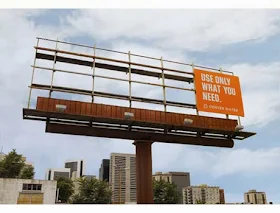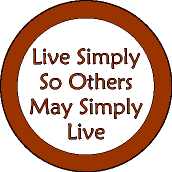 |
| A smaller, more local life can be very rewarding. |
Economic fertilizer spreaders started spewing talk of "green shoots" shortly after the beginning of the Great Recession of 2008. Five years later and most of us are getting horse manure rather than the green stuff.
I have stopped waiting for "the recovery". I don't think it is coming. Ever.
Economists fling about the term "jobless recovery", but what that really means is no recovery as far as the majority of people are concerned. This is likely to continue - we have entered the era of contraction.
Blame the end of cheap energy, climate change, government corruption, environmental collapse, our own ennui, market manipulation, or the downfall of capitalism, but the days of abundance are coming to an end, the victim of natural limits on growth and consumption.
In the years ahead economies will likely contract, meaning that lifestyles will as well. Ask the people of Greece about contraction - they are currently having an involuntary crash course. The Bank of Greece predicted a 4.6% economic contraction for this year.
For many, downsizing to smaller more local lifestyles will be a difficult adjustment to make. But it does not need to be a disaster if one is prepared. Depending on your perspective, it could be seen as an interesting challenge rather than a hardship.
Either way, preparation is the key to thriving while responding to shrinkage in our economies and our lives.
Thriving During Economic And Lifestyle Contraction
There are two major things that will help anyone thrive in tough times:
1. The first is the ability to do without as much as you can.
In order to be ready for anything you have to be able to cut your expenses, and expectations, to the bone at a moments notice. People that can adapt quickly and focus on meeting needs efficiently will be well suited for a downsized lifestyle.
Remember that one vision of Hell is of a place where you always get whatever you want. I saw that in a black and white Twilight Zone episode, and now we are living it in Technicolour.
While contraction is taking place slowly now, it is important to reduce our addiction to out of control consumer spending before contraction gains momentum. The sooner you cut spending, the more you can save and the better prepared you will be.
When I think about doing without as much as I can I think about camping. For me camping is all about stripping life to the basics, and I love it.
2. The second is to be able to provide for as many of your own needs as you can yourself.
Spending less money means doing more things for yourself. I see this as a wonderful opportunity to learn new things and develop new skills. Lifelong learning, curiosity and ingenuity are major survival skills that allow one to change and grow successfully with the conditions.
Those who can do things like cook from scratch, bake, sew, cut hair, grow food, keep animals, and build and fix things are likely to do better than those who lack these skills. If you currently don't possess the skills required for increased self-reliance, now is a good time to learn.
There are probably community/adult education classes near you that you can take to learn valuable skills that will help increase self-sufficiency. Eventually these skills can become enjoyable pursuits that connect you to a more authentic and enjoyable life.
Of course no one can do everything, and this is where a strong community comes in handy. We can share our skills with others and create networks of trading and bartering for goods and services. We can pull together and take care of one another.
Stop waiting for a recovery that may never come. If you can manage doing without and take care of your own needs, you will adapt well to the new economic reality of contraction. In the process you may find that your new smaller, more local and more authentic lifestyle is more rewarding.

























.jpg)


















